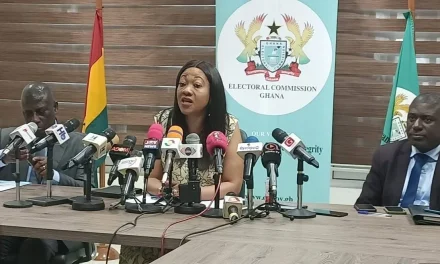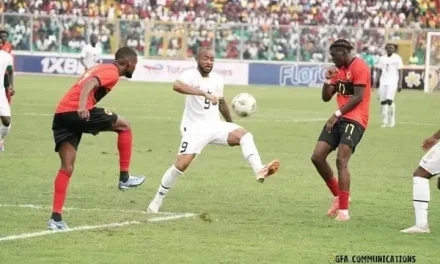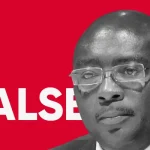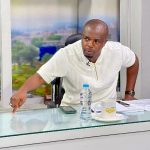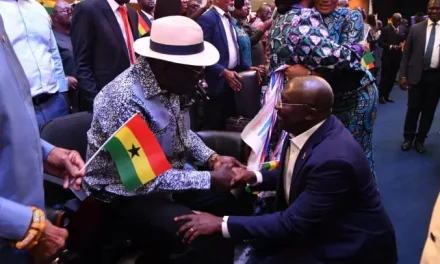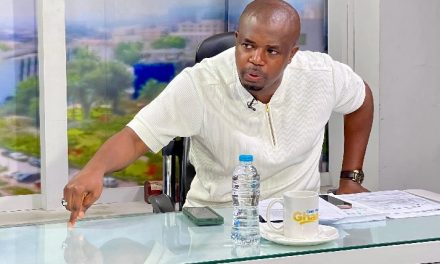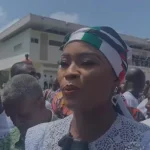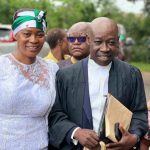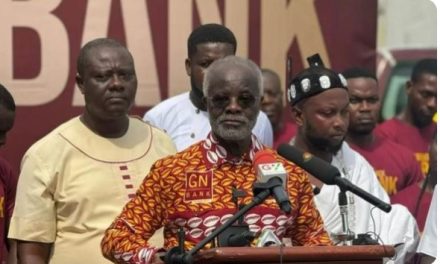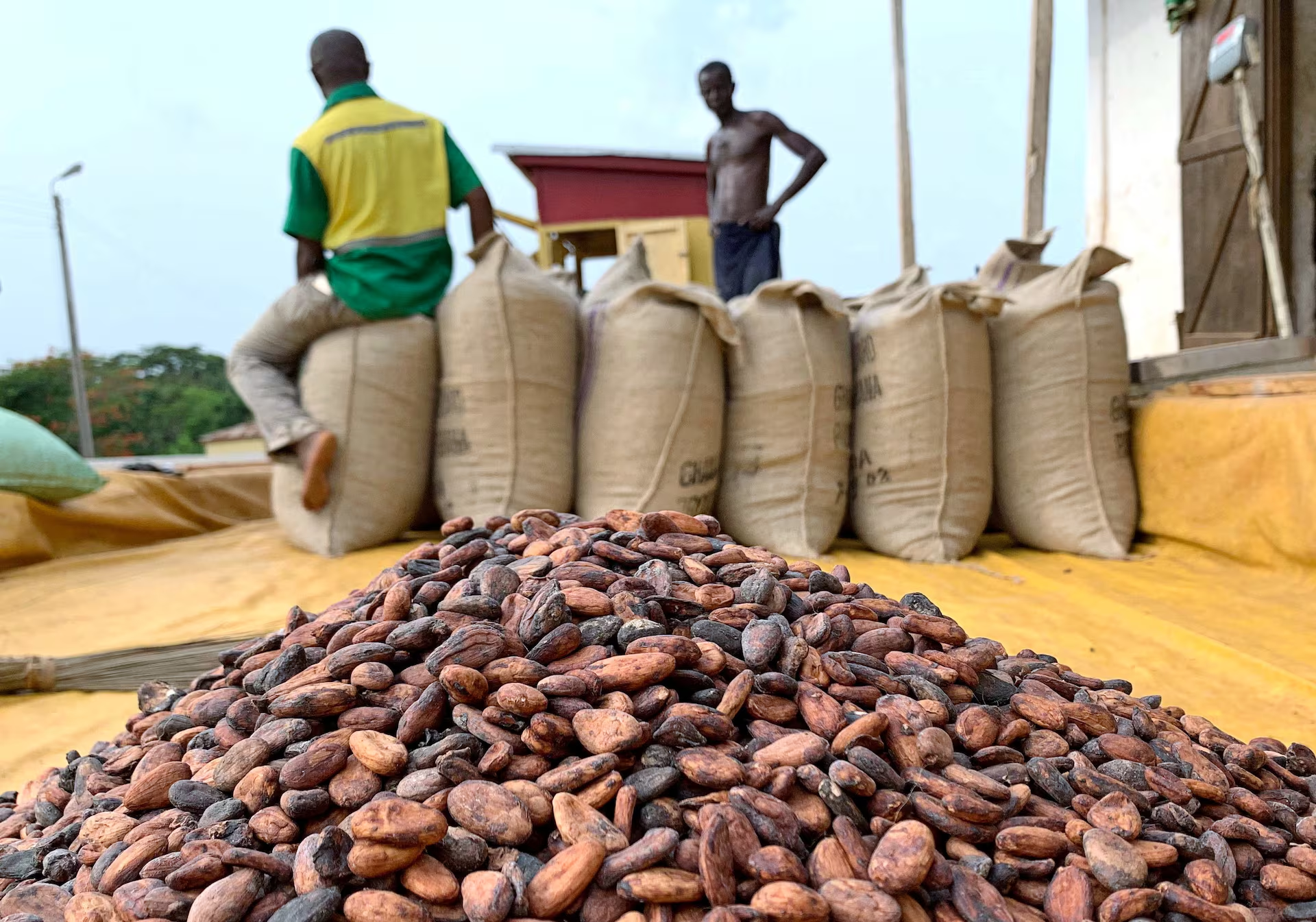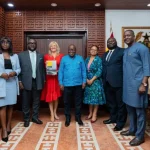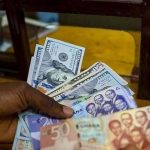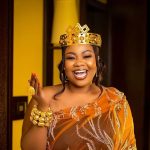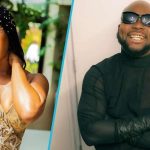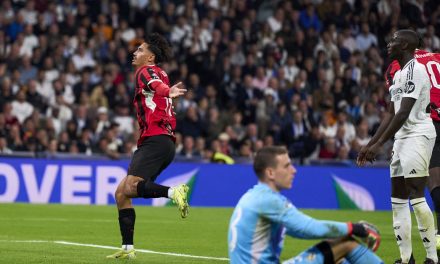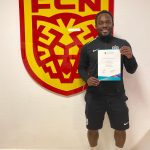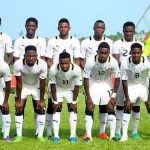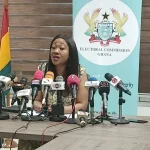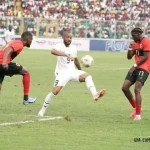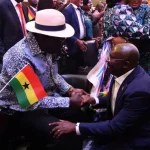
video:sex predator with 3 Quack licences as a practitioner
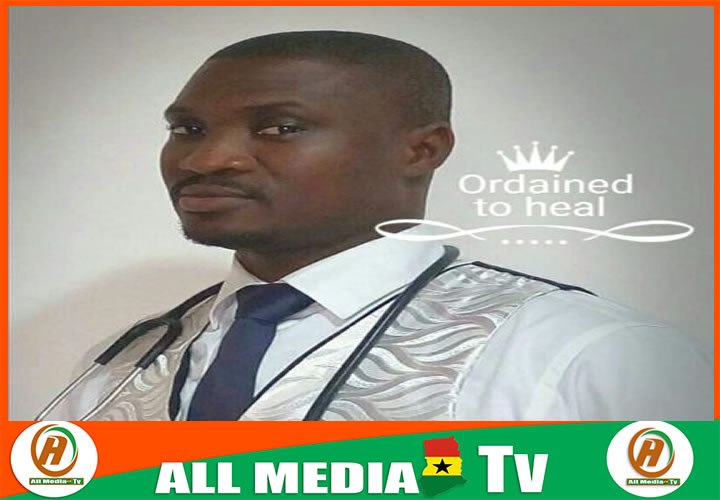
In the concluding part of “The Licensed Sex Predator” series, Manasseh Azure Awuni of The Fourth Estate reveals how Jonathan Ohene Nkunim obtained three licences from a regulatory body despite visible signs that all was not well with his practice.
In the consulting cubicle of Nature’s Hand Therapeutic Centre, one does not have to look too hard to find the documents that ‘legitimise’ the work of ‘Dr’ Jonathan Ohene Nkunim. His certificates and three licences from a state regulatory body are conspicuous enough to catch the attention of an unconscious eye.
The certificates and licenses were his fortresses when I visited his facility on April 16, 2021. They were the solid rock on which he stood; the reason he did not hesitate to open up to me when I introduced myself, my mission, and broached the first of the two subjects I had gone there to discuss.
Health regulatory bodies often advise patients to keep both eyes wide open when they visit a physician. It can be fatal to shut one’s eyes to unpleasant sights when one visits a health facility, they say.
It is the reason the Health Institutions and Facilities Act, 2011 (Act 829) mandates health facilities to display licences “in a prominent place which is accessible to patients and clients in the premises of the practice.”
Clients seek assurance from the displayed credentials. And the practitioners, such as Jonathan Ohene Nkunim, seek validation from them. But, sometimes, displaying the certificates alone is not enough reason to trust a facility.
Efua saw licenses when she visited Nature’s Hand Therapeutic Centre, but it did not prevent the disturbing “treatment” that eventually resulted in an affair that collapsed her marriage. Suicidal Esi saw them when she visited, but that did not stop her from being “raped” on a massage bed. Stephanie saw those certificates, but they could not insulate her from being sexually abused when she sought treatment.
What the three women and others could not or did not see were the circumstances under which those licences were issued. And whether the practitioner kept within his scope.
Those licences were the reason he was unnerved at the allegation that he was practising without the requisite authorisation. They were the reason he listened carefully and calmly when I broached the subject, without the faintest clue of uneasiness at the suggestion of illegality.
When I was done, he did not speak a word. He started to remove half a dozen certificates and licenses that were neatly framed and hung on the wall in his consulting cubicle.
“Dr” Jonathan Ohene Nkunim’s False Claims
Jonathan had told Stephanie Nortey, the undercover agent The Fourth Estate sent to the facility that he was a medical doctor. He said he completed medical school at the age of 23 and went to China to specialise in neuromuscular practice. He then returned to Ghana to work at the Korle-Bu Teaching Hospital before setting up his facility in 2018, he claimed.
My checks from the Medical and Dental Council showed that the Council did not have any such name ever licensed as a medical doctor in Ghana.
His age, which varied depending on the age of the woman he wanted to sleep with, did not match the timelines he gave for his education and career journeys.
When I chatted him on WhatsApp in the name of Stephanie, I asked for specific timelines, to which he replied with the following:
Finished SHS 2001
University of Ghana 2002 to 2006
Chandzou [Chengdu University] 2006 to 2009
When I asked him whether the duration of medical school was four years in his days, he said no. That was the first time he claimed he had studied physiotherapy at the University of Ghana, and not medicine. But the admission that he wasn’t a medical doctor, but a physiotherapist, would later prove to be false.
When I asked the hall of residence he had been at the University of Ghana, he named the all-male Commonwealth Hall, before going ahead to say that I sounded like a detective.
“V-mate!” I said, salutation with which members of the hall greet each other.
“Kokookokor,” he responded.
When I asked how he combined physiotherapy and neuromuscular in his practice, Jonathan Ohene Nkunim said he used his expertise in neuromuscular techniques to diagnose his patients but treated them with his expertise in physiotherapy.
His set of skills were rare and very much sought after, he had told Stephanie. He could not stand the jealousy and petty squabbles at the Korle-Bu Teaching Hospital, the nation’s biggest hospital, so he left in 2018 to set up his facility.
However, checks at the human resource department of the Korle-Bu Teaching Hospital revealed that no such person had worked in the hospital in the last five years. Neither the name nor the photograph of Jonathan Ohene Nkunim (which they requested) rang a bell to those who were in a position to know if he had worked there.
Dr. Paul Amankonah, the President of the Ghana Physiotherapy Association, told me that name did not ring a bell in the physiotherapy space in Ghana. Dr. Amankonah, who works at the Physiotherapy Department of the Korle-Bu Teaching Hospital, also said no such person was known to have worked in the department in recent years.
Before I confronted Jonathan with the information from my background checks on him, I took interest in his certificates and licences. So, they were not new to me when he placed them on the consulting table in front of me and asked that I go through them and satisfy myself that he was both qualified and licensed to practice.
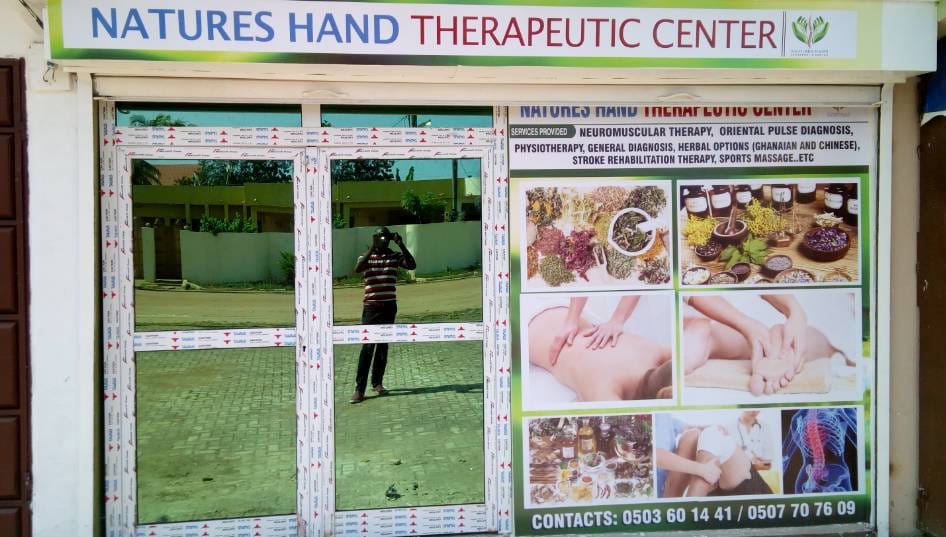
The most advanced certificate that represented his professional qualification was a multi-coloured one purportedly from the Chinese National Certification Commission for Acupuncture and Oriental Medicine. It was by the Chengdu University in China.
The certificate, (R.TCMP) Neuromuscular (Star 4), was awarded to Jonathan Ohene Owoo.
Jonathan Ohene Nkunim explained that his surname used to be Owoo until he changed it to Nkunim. He also explained to me that the neuromuscular programme was up to 12 Stars, but he stopped at the fourth star.
He also had two certificates from two free online programmes—Neurological disorders, and Physical Therapy Aide—awarded to him in June 2020 by Alison. Alison describes itself as “one of the world’s largest free learning platforms for education and skills training.”
Apart from the three certificates, Ohene Nkunim also had three licences from the Traditional Medicine Practice Council (TMPC), Ghana’s regulatory body for traditional and alternative medicine. On its website, TMPC says it “is not relenting in its determination to brand and create a respectable image for Traditional and Alternative Medicine (TAM) practice in Ghana.”
One of licences the council issued to Jonathan Ohene Nkunim is to enable him to practice as a “Doctor of Alternative Medicine”, while the other gave him the right to practice as a “Herbal Medicine Practitioner”. The third was a licence issued to Nature’s Hand Therapeutic Centre by the Traditional Medicine Practice Council.
I Lied About My Credentials
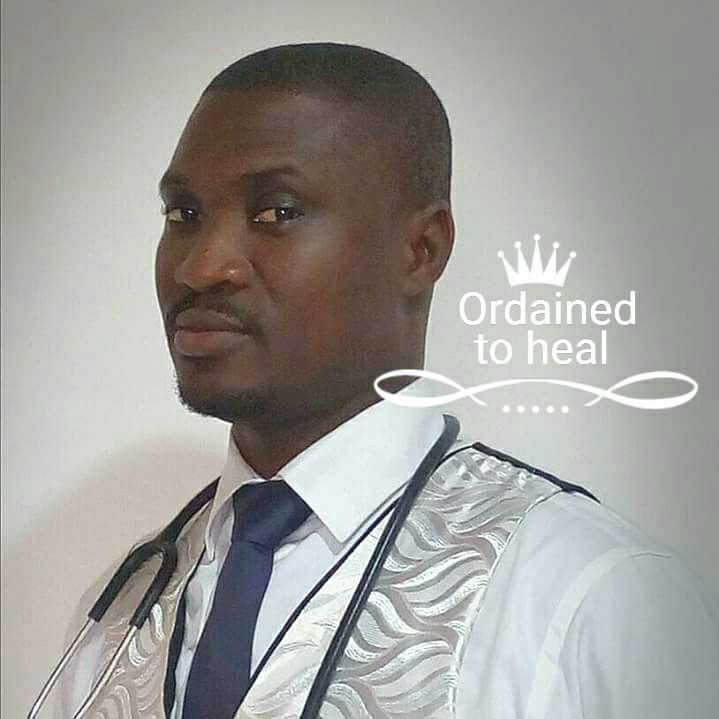
“Dr.” Jonathan Ohene Nkunim does not tell his clients what kind of “doctor” he is. On social media and in some of his official documents, he creates the impression that he is a medical doctor. He, however, came clean when I confronted him. He told me he was a traditional doctor, which allowed him to use herbal medicine for treatment. He also said he was an alternative doctor, which allowed him to use various forms of therapy for treatment.
“When we talk of therapy, it combines so many things. We have light treatment, electro-pulse treatment, detoxification, physical therapy and massage,” he explained.
“Did you study physio itself, physiotherapy as a course?” I asked.
“No,” he said.
He said when he returned from China, he was not accepted by the Ghana Physiotherapy Association.
“Neuromuscular has no faculty in Ghana. So, when I approached the Ghana Physiotherapy Association, they said they couldn’t place me because what I do is an advanced form of physiotherapy.”
“Did you work at Korle-Bu?” I asked him.
“No, I didn’t,” he said.
“One of your clients told me you said you worked at Korle-Bu—the physiotherapy unit—for two years.”
“I want to get my facts right,” he said after a long pause. “Am I being recorded?” he asked.
I told him I wasn’t recording him, but I had come with a camera crew for an official interview if he wanted to be recorded.
He initially said he would think about it. But after we discussed the sexual abuse of women at his facility, he said a story of that nature would create the impression that he slept with all the women who visited him. It wouldn’t be good for his female clients, he said. So, he declined a recorded interview.
But he continued. And conceded that he had lied about his credentials and work at the Korle Bu Teaching Hospital.
Jonathan Ohene Nkunim had also told Stephanie Nortey that he was a medical doctor and later conceded he studied physiotherapy when I chatted him on WhatsApp as Stephanie. When I met him, I asked why he presented himself to his patients as someone he was not.
“I wanted to inspire her [Stephanie] so I lied to her,” he said.
“That you went to the University of Ghana, which is not true?” I asked.
“Yes. Today if she comes…She’s supposed to be here today. I don’t know why she’s not here. When she comes, I’ll tell her that ‘some of the things I said, take it with a pinch of salt’. They’re not true.”
“If you’re telling your patients what is not true—that you have some qualification which you don’t— doesn’t it breach your ethics?”
He disagreed that he had told them about qualifications he did not have. He said he had lied about schools he had attended, but not his qualifications.
He said he did not attend any university or tertiary institution after he completed senior high school. He had the chance to travel to China, where he did a programme in neuromuscular practice and returned.
He is not a medical doctor as he had claimed to some of his patients. He is not a physiotherapist or licensed to practice it. He has not attended the University of Ghana. And he had not worked at the Korle-Bu Teaching Hospital as he claimed. He admitted he had lied to impress his female client, The Fourth Estate’s undercover agent.
As of September 2021, Ohene Nkunim said he had between 170 and 200 active patients he was attending to. Asked about the stack of about 500 patients’ folders at his facility, he said those were patients he had treated and discharged.
Some of his clients, he said, were high-profiled Ghanaians, including some politicians.
Traditional Medicine Practice Council’s role in the “fake” license
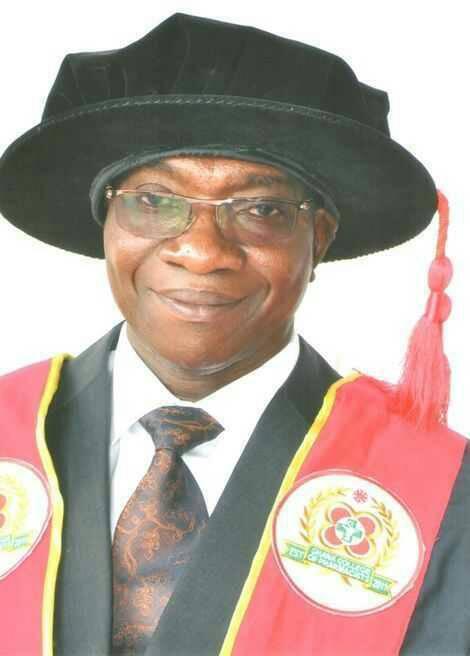
On April 19, 2021, I wrote to the Registrar of the Traditional Medicine Practice Council. I wanted to confirm that the council had, indeed, issued Jonathan Ohene Nkunim with the licenses he was operating with.
I also asked the Council to confirm whether their licences allowed Ohene Nkunim to offer the range of healthcare services he advertised and offered.
Jonathan Ohene Nkunim describes himself on social media as “a Doctor by profession and a gosple [sic] minister by calling.”
A Facebook photo of him sporting a white long-sleeved shirt, a black and silver waistcoat and a navy-blue necktie and with a stethoscope around his neck is captioned, “Ordained to Heal.” On his Instagram page, the same photo is captioned, “I may be a Doctor but the worshipper in me is who I really am.”
A business card with the name “Dr. Jonathan Ohene Nkunim” describes him as a Neuromuscular Specialist. The services he provides at Nature’s Hand Therapeutic Centre, as stated on the card, are: “General Diagnosis, Neuromuscular Therapy, Physio Therapy, Detoxification and Spine Straightening.” A notice at the entrance of his facility as well as the official Facebook page of Nature’s Hand Therapeutic Centre lists additional services as “Oriental Pulse Diagnosis, Herbal Options (Ghanaian and Chinese), Stroke Rehabilitation Therapy, Sports Massage, etc.”
I wanted to know what basis the TMPC offered the three licences to him to practice and what were the limitations of those licences.
In a response dated June 9, 2021, the TMPC said it had given Jonathan Ohene Nkunim and his facility two licences. The TMPC said it gave him a licence as a “Herbal Medicine Practitioner” and “that of his facility as an Indigenous Facility. The two licences would expire on 30th May 2021,” the letter signed by the TMPC director of administration, Nelson Menorkpor, said.
“According to our records, T/Dr. Ohene Nkunim is not a Doctor of Alternative Medicine but a Herbal Medicine Practitioner,” the letter emphasised.
On the scope of practice authorised by the licences, the TMPC letter said “he can only work generally on a patient using traditional medicine.”
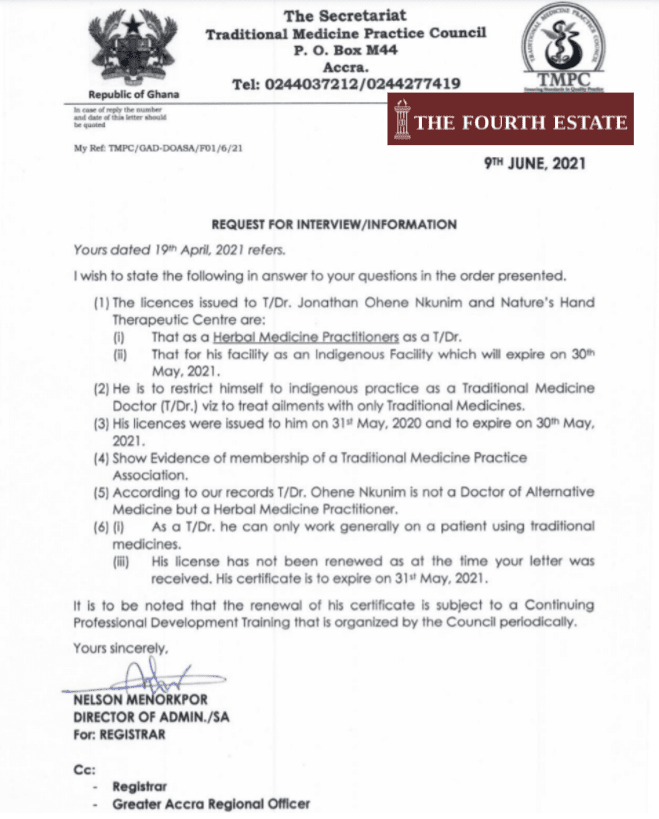
Before the TMPC responded to my letter, however, I had a call from Jonathan Ohene Nkunim. He told me that the TMPC had come to close down his facility because one of his licences—the one for alternative medicine practice— was said to be fake. He said the TMPC officials said I had written to them to enquire about the licences and they had acted based on my letter and realised his third licence had issues.
Asked how he acquired the licence, he said the general secretary of the Ghana Alternative Medicine Practice Association (GAMPA) had offered to assist him to acquire the licence from TMPC when he asked about the process on the association’s WhatsApp platform. He, therefore, paid the money to the secretary, and he later returned with the licence and official receipts covering the payments.
The TMPC closed down Nature’s Hand Therapeutic Centre on May 12, 2021. William Korlo, an officer at TMPC made a complaint at the Gbawe Police against Jonathan Ohene Nkunim for practising alternative medicine without a licence, the police told me.
My checks with the Odorkor Divisional Police Command, which oversees the operations of the Gbawe Police, also revealed that three suspects were being investigated.
They were Jonathan Ohene Nkunim, the secretary of GAMPA, whose name was given as Hilary; and an officer at the TMPC called Anthony Agyapong.
According to the police, their investigation had revealed that Hilary took GHc3000 from Jonathan Ohene Nkunim as the fee for the licence. (Ohene Nkunim later said he paid GHc3,500 to the secretary of the association.)
Hilary then paid Anthony Agyapong of the TMPC GHc1000 to process the licence. Anthony Agyapong, in turn, paid GHc750 to the TMPC as the official charge for the licence, which was processed and printed out for Ohene Nkunim.
The disputed license was duly signed by the registrar of TMPC, Torgbuiga Yaka IV.
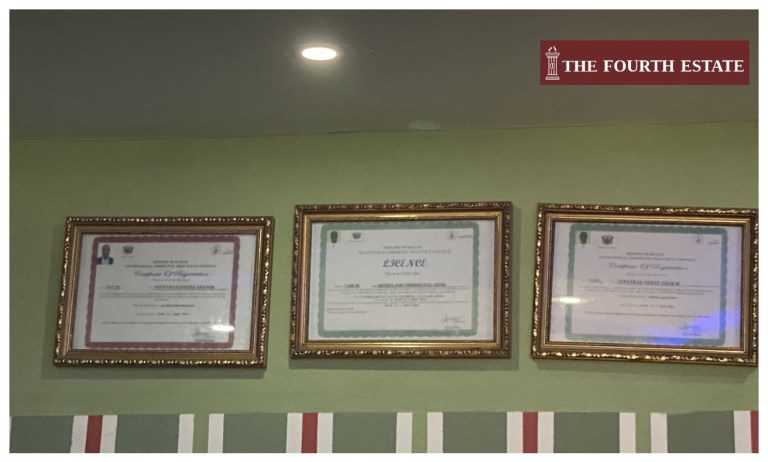
The contention, which is still being investigated at the time of filing this report, is the fact that the licence that was issued to Jonathan Ohene Nkunim by the TMPC, had the same serial number as the one that had been issued to another alternative medicine practitioner named Dora Ntiamoah, a female. The photographs of the practitioners on the licences were, however, different.
At the time of filing this report, the police had interrogated three suspects. The police said the TMPC’s Anthony Agyapong insisted the license issued to Jonathan Ohene Nkunim was genuine and explained that the serial number was generated by the TMPC’s IT unit and they may have made a mistake.
These anomalies had come up almost two months before the TMPC responded to The Fourth Estate’s letter. That letter was what triggered the discovery of the anomalies, but the TMPC invited other media houses to cover the closure of Nature’s Hand Therapeutic Centre without inviting The Fourth Estate.
When TMPC responded to my letter specifically asking about the licences, the TMPC did not mention any of the internally-generated anomalies in which two licences with the same serial number had been issued to two different practitioners. It did not mention the shutting down of Nature’s Hand Therapeutic Center as a result.
Jonathan Ohene Nkunim later called to inform me that he had reapplied for the licence after the TMPC shut down his facility. He said the council had said it was unable to process his application because of my investigation. He was, therefore, pleading with me to intervene. Officials of the council, he told me, said if I could write to withdraw my letter requesting information on his facility, they would go ahead and process the application.
New licence issued, Nature’s Hand reopened
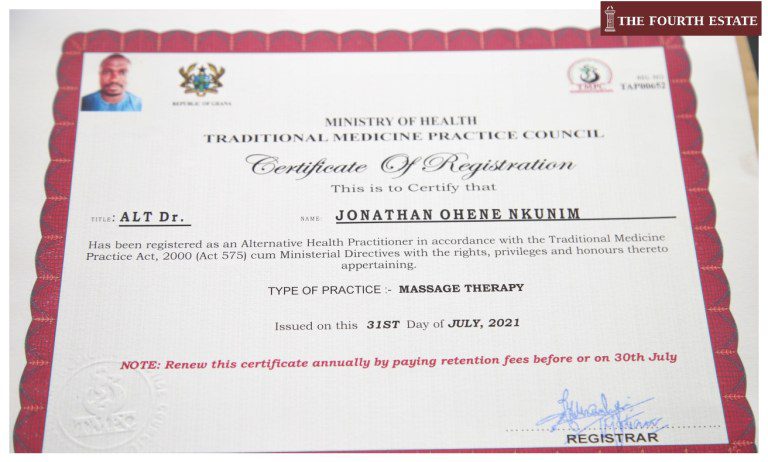
The police are still investigating the circumstances under which Ohene Nkunim obtained the licence that had been declared fake by the TMPC. The registrar of TMPC, Torgbuiga Yaka IV told me on the phone that he welcomed that investigation because there were bad nuts in his institution who were undermining efforts at quality control in the field of traditional and alternative medicine practice.
A visit to Nature’s Hand Therapeutic Centre however revealed that the facility has been open for operations.
Torgbuiga Yaka IV said even though Ohene Nkunim’s licence for alternative medicine was still being investigated by the police, the Council had issued him a new license after he presented certificates of online courses he did.
That new licence was issued on July 31, 2021, and signed by the registrar states the type of practice as “massage therapy.”
A wide range of services, including physiotherapy, which Ohene Nkunim has said he wasn’t trained, are still advertised at the facility.
What qualified Jonathan Ohene Nkunim for the two other Licences
In my letter to the TMPC, I asked, “What qualifications did Dr. Jonathan Ohene Nkunim provide to the Council before he was given the licences?”
The TMPC’s response was, “Show evidence of membership of a Traditional Medicine Practice Association.”
According to the Traditional Medicine Practice Act, 2000 (Act 575), the above reason is not listed as one of the conditions to grant a practitioner and his facility a licence to practise.
Some trained practitioners of alternative and traditional medicine are worried that the TMPC is licensing quacks without doing due diligence.
On April 24, 2021, a traditional medicine practitioner wrote to me to investigate the laxity in the TMPC’s operations. He didn’t know that I was working on a story that involved the council. He was worried that dolling out licences to whoever asked for one portended danger for the unsuspecting public who visit such health facilities.
“The challenge here is with the regulator. They barely regulate anything. They issue certificates even without coming to inspect premises and they did it to me 2 times. All I needed to do was just pay them after filling the forms and they called me and issued me a licence for operation,” the practitioner said.
This practitioner was worried that the TMPC was making it difficult to differentiate the fake practitioners from the genuine ones by indiscriminately issuing licences to whoever had money to pay and ask for one
“Our training in KNUST [Kwame Nkrumah University of Science and Technology] and Mampong [Centre for Plant Medicine] takes us 6 years to be licensed. We are trained in medical school and Pharmacy school and then we do attachment and clinical rotations for additional two years. When you are out, and you see the body responsible for ensuring sanity in the system messing up, it hurts,” the petitioner said.
More breaches with the FDA and Allied Health Professions laws
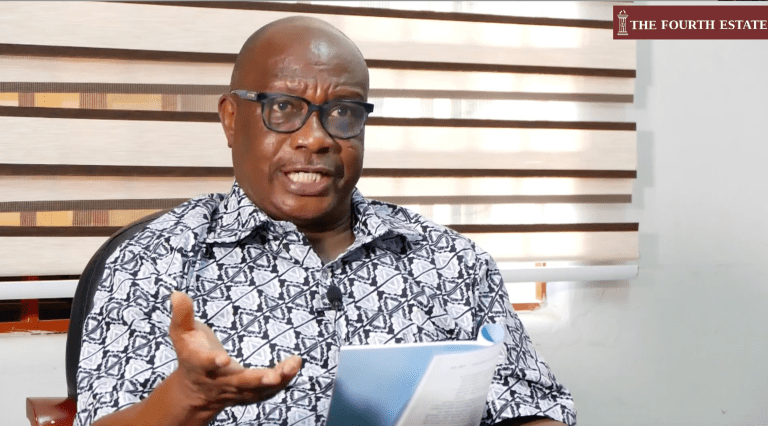
In April 2021, I wrote to Health Institutions Regulatory Agencies (HeFRA) to ascertain whether the range of services provided at Nature’s Hand Therapeutic Centre required the licensing of the facility by HeFRA.
(HeFRA is responsible for licensing health facilities even if the individuals are licensed by their respective bodies. For instance, medical doctors and dentists are licensed by the Medical and Dental Council, but the facility in which they operate will still have to be licensed by HeFRA.)
Ohene Nkunim and his facility have advertised that they offer physiotherapy. The President of the Physiotherapy Association of Ghana said whoever practices physiotherapy must first have their facility licensed by HeFRA.
At the time of filing this report (September 23, 2021) HeFRA had not responded even after several follow-up visits to the registrar’s office.
The Registrar of the Allied Health Professions Council, Dr. Samuel Yaw Opoku, told The Fourth Estate that HeFRA was responsible for licensing facilities where services such as physiotherapy were offered. However, the practitioner, such as Ohene Nkunim or whoever practised as a physiotherapist in Ghana, had to be licensed by the Allied Health Professions Council.
When I met Ohene Nkunim, he said he did not practise Physiotherapy. He explained that what he did was physical therapy.
“I do physical therapy and it doesn’t require license if I’m doing it as alternative medicine,” he said.
Dr. Samuel Opoku, however, said those were issues of semantics but they meant the same thing.
What, perhaps, ends any form of controversy in this regard is the fact that Jonathan’s call card lists the services he provides. In that list is “Physiotherapy”.
Quoting offences contained in the Allied Health Professions Act, Dr. Samuel Yaw Opoku said among others that a person commits an offence under the Act if they:
“(a) makes a false declaration in an application for registration as a practitioner; (b) willfully and falsely uses a name, title or an addition implying a qualification to practice as an allied health professional; (c) practices or professes to practice as an allied health professional without prior registration; (d) fails to renew registration and continues to practice; (e) provides unauthorised service in a licenced facility; (f) provides service in an unlicenced facility; (g) fails to conform to practice standards of the allied health profession;…”
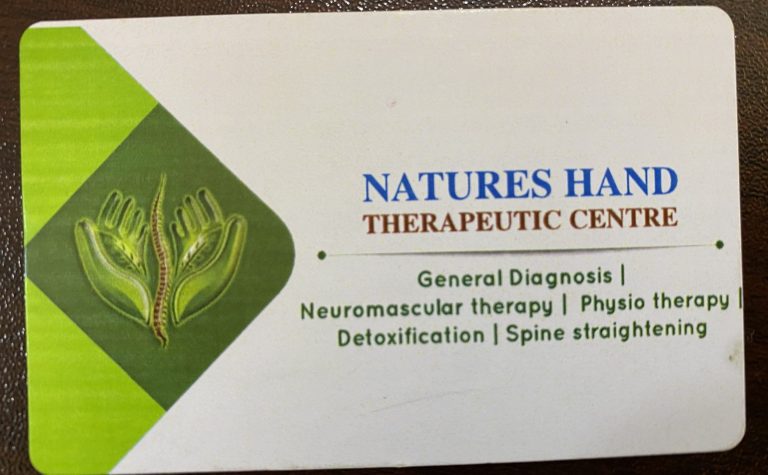
Jonathan Ohene Nkunim also dispenses medicines that are mainly from China. He initially told me they were registered by Ghana’s Food and Drugs Authority, but when we inspected one of the containers together, there was no sign of any FDA registration.
He then claimed that the approval had rather been done by an international body called the EPA. Once the EPA approved a medicine, he argued, it did not require any further approval from the FDA.
This is, however, not true according to the FDA law. Section 118 of Act 851 states: “A person shall not manufacture, prepare, import, export, distribute, sell, supply or exhibit for sale a drug, herbal medicine product, cosmetic, medical device or household substance unless the article has been registered by the Authority.”
One of the medicines he prescribed and sold at his facility to The Fourth Estate’s undercover agent had all its writings in Chinese.
According to the 2019 Global Report on Traditional and Complementary Medicine, published by the World Health Organisation, “herbal medicines are used by 80-99% of the population” in Ghana.
The establishment of the Traditional Medicine Practice Council and the introduction of herbal medicine programmes in the university were meant to solve this problem and protect patients.
But it appears the aim to sanitise traditional medicine practice will take much longer to achieve if the likes of Jonathan Ohene Nkunim could get three licences without any proof that they have what it takes to safeguard the patients they are licensed to attend to.
Source: TheFourthEstate

